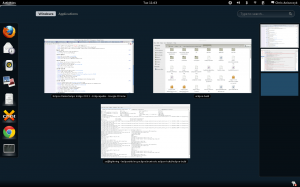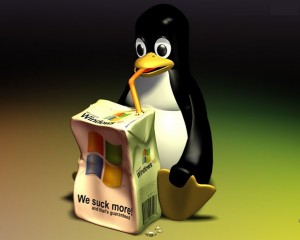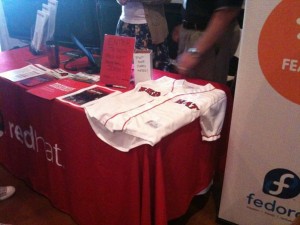Last year I had the opportunity to help build out/run the Open Container Initiative (OCI) and I wanted to take some time to reflect back on what the OCI community accomplished in 2016 and how far we’ve come in a short time since we were founded a little over a year ago.
New #OCI blog post highlights 2016 milestones and what's to come in 2017 https://t.co/EOdxcfNMs5
— OCI (@OCI_ORG) January 23, 2017
The community has been busy! The project saw 3000+ commits from 128 different authors across 36 different organizations. With the addition of the Image Format specification project, we expanded our initial scope from just the runtime specification. Our membership grew to nearly 50 members and we also added new developer tools projects —runtime-tools and image-tools— which serve as repositories for conformance testing tools and have been instrumental in gearing up for the upcoming v1.0 release.
We’ve also recently created a new project within OCI called go-digest (which was donated and migrated from docker/go-digest). This provides a strong hash-identity implementation in Go and services as a common digest package to be used across the container ecosystem.
In terms of early adoption, we have seen Docker support the OCI technology in its container runtime (libcontainer) and contribute it to the OCI project (as runc). Additionally, Docker has committed to adopting OCI technology in its latest containerd announcement. The Cloud Foundry community has been an early consumer of OCI by embedding runc via Garden as the cornerstone of its container runtime technology. The Kubernetes project is incubating a new Container Runtime Interface (CRI) that adopts OCI components via implementations like CRI-O and rklet. The rkt community is adopting OCI technology already and is planning to leverage the reference OCI container runtime runc in 2017. The Apache Mesos community is currently building out support for the OCI image specification.
Speaking of the v1.0 release, we are getting close to launch! The milestone release of the OCI Runtime and Image Format Specifications version 1.0 will hopefully be available this first quarter of 2017 or shortly the following quarter, drawing the industry that much closer to standardization and true portability. To that end, we’ll be launching an official OCI Certification program once the v1.0 release is out. With OCI certification, folks can be confident that their OCI-certified solutions meet a high set of criteria that deliver agile, interoperable solutions.
We’ll be looking into the possibility of adding more projects in the coming year, and we hope to showcase even more demonstrations of the specs in action under different scenarios. We’ll be onsite at several industry events, so please be on the lookout and check out events page for details.
There is still much work to be done!  The success of our community depends on a wide array of contributions from all across the industry; the door is always open, so please come join us in shaping the future of container technology! In particular, if you’re interested in contributing to the technology, we recommend joining the OCI developer community which is open to everyone. If you’re building products on OCI technology, we recommend joining as a member and participating in the upcoming certification program.
Note: This was cross-posted to the OCI community blog.




